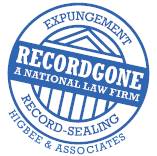There is a group of Minnesota House Members and Senators that have come together to form the Expungement Working Group. On Tuesday, they had their third meeting in three months, and at this meeting lawmakers heard public testimony on the current issues surrounding expungement law. Much of the testimony focused on the effect a criminal record has on a prior offender’s ability to secure employment and the changes that must be made to the expungement law to remedy this problem.
The public described the current Minnesota law as “toothless” and a “meaningless remedy” during the testimony. Under the current law, an “inherent authority” expungement, which is an expungement under Minnesota Statutes, chapter 609A of a case that resulted in a finding of guilt, only expunges the judicial records. The other type of expungement is a “statutory expungement,” which are only available for certain cases that were resolved in favor of the defendant.
The Minnesota Supreme Court ruled last May that judges granting an “inherent authority” expungement can expunge only court records. The executive branch records are not sealed or expunged. This means that the records of the Minnesota Bureau of Criminal Apprehension (BCA) are unaffected and remain available to the public. Because of this, these records continue to appear in background checks, preventing applicants from securing work or housing.
Steps are Being Taken to Improve Minnesota Expungement Law
Minnesota State Representative John Lesch, D-St. Paul, has drafted a bill that would expand the judge’s power and allow them to seal all records, both the judicial and executive branch records, when granting an expungement. The bill, which he has called a “conversation starter,” is expected to be the first of several solutions that will be proposed before the Legislature convenes in February.
It is extremely good news that Minnesota has a dedicated group of lawmakers, who are looking to improve the current deficiencies with the state’s expungement law. The main concern seems to be that an expungement does not seal the executive branch records. A Minnesota expungement will be much more beneficial if that deficiency can remedied. Rep. Debra Hilstrom, D-Brooklyn Center, who co-chairs the expungement group, said “I’m confident that we’re going to get something done this session.”
At the conclusion of the November meeting, co-chair Hilstrom requested proposals on these problems be submitted by December 1, 2013, and they will be holding additional meetings to review those proposals. Additional testimony will be permitted at these meetings, and they hope to post the proposals online and continue to receive feedback from the public.
As soon as we have further more information on the proposals and the progress that Minnesota is making towards improving their expungement laws, we will post those updates here.
Stay up to date on expungement related news on our news page or to learn more about clearing your record, read our page on criminal record expungement.



